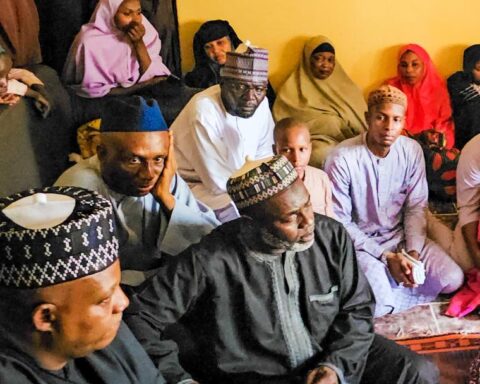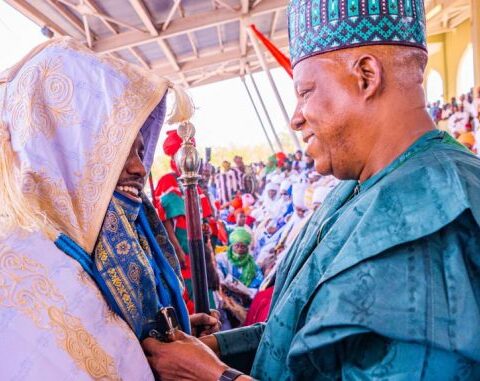The decision by the new governor of Borno State, Kashim Shettima, to explore dialogue with an amnesty for members of the Yussufiya Islamic movement in Borno, better known as BOKO HARAM is one of the most courageous political decisions, since the last election.
Not surprisingly, the group rejected the offer, re-stating its commitment to Sharia; in recent weeks, it ramped up attacks on police stations; killed a brother of the Shehu of Borno, and even attempted to bomb the University of Maiduguri Teaching Hospital. As a commentator noted, these are difficult times in Borno and must be exasperating for the new governor.
I am convinced that exploring dialogue/amnesty with the sect, in order to bring them back into society and within the loops of the development process, is a correct step.
So serious has the issue become, that the Federal Government called a high level security meeting last week, after which it decided on a “carrot and stick” approach to solving the menace of BOKO HARAM. Underlining government’s perspective is realisation that this is not just a “law and order” issue that needs the jackboots of the military to crush.
There is in fact a deep-seated social problem which must be tackled in a way that allows members of the sect to emerge from the underground to abandon guerilla activities against the state and become rehabilitated into society. This thinking is useful, and the only negative response I have seen on the matter, was in THE NATION of Sunday, June 12, 2011.
Idowu Akinlotan, saw the effort as “an acknowledgement of the government’s…incompetence in the face of crime”. He reminded us that “Boko Haram is about religious intolerance, about arson, and about destroying government and any other institution that promotes and defends Western education”.
To heighten our fear and anger, Akinlotan added that “it is this extremist group with omnibus objective that our government wants to negotiate with”. He then proceeded to vulgarise the issue by asking government to “also get ready to negotiate with and give amnesty to armed robbers, rapists, money launderers, road offenders, kidnappers and other criminals”.
Of course his position is based on a prejudiced appreciation of issues that concern militant Islam in Nigerian political life. Akinlotan saw wisdom in offering amnesty to the Niger Delta militants; I agree too. But they also carried out killings; declared war on the Nigerian state, and cut off vital oil supplies on which depends Nigerian economic well-being.
So if they got amnesty and a government-funded rehabilitation, why not give an opportunity to BOKO HARAM militants to also come in from the cold? Theirs are also anti-state acts against a Nigerian state which became increasingly alienated from a huge swathe of citizens, from about the mid-1980s. Akinlotan probably romanticises OPC and Niger Delta militants.
These are popular anti-state platforms in Southern Nigeria, based as they are on ethnic identities. The history of Northern Nigeria has made Islamic identities the platform upon which anti-state resistance has been organised.
Idowu Akinlotan might also know that many of the BOKO HARAM militants are educated in the Western sense, but rebelled against the Western ways that have not worked for the mass of the people, but have aided the corruption of the Westernised Northern political, economic and traditional elite. BOKO HARAM represents a clear expression of the crisis of underdevelopment in Northern Nigeria.
In Borno, over 70percent of school age children are not in school; while infant mortality and household poverty are a scandal! These are the roots of BOKO HARAM which anti-Muslim prejudice cannot wish away. The best way out is to bring the militants into the development process. Borno’s new governor and the Federal Government are taking the right step, offering amnesty to BOKO HARAM militants!






